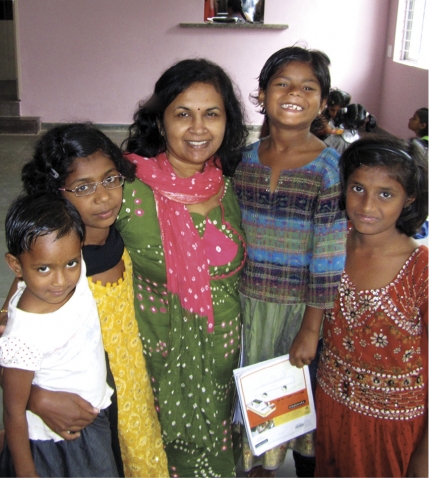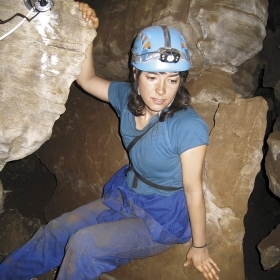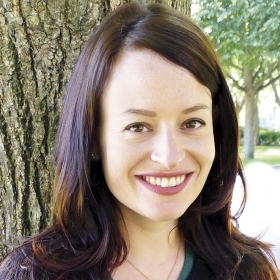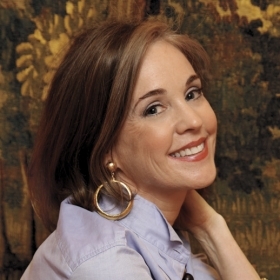Sarva Ramakrishna Rajendra ’83, a political-science major from Charleston, W.Va, knew from example that education could change a person’s life: Her father grew up in poverty in Thalagavara, a village outside of Bangalore, India, and he eventually became a civil engineer in West Virginia. He always felt it was the encouragement of his teachers that gave him the confidence to succeed in school and escape the circumstances of his childhood. When it came time for Sarva to choose a college, she looked at Wellesley because one of her high-school classmates had gone there, and she fell in love with the place immediately. Her parents liked the College’s emphasis on educating women who will make a difference in the world—“that feeling that you should have a charge to make that difference,” Sarva says.
Her parents, T.V. and Vijaya Ramakrishna, certainly felt that charge in their own lives. In 1998, they founded Sahasra Deepika, a nonprofit foundation in Bangalore that now provides residential care for 60 girls, education on campus for these girls and for chil- dren from the community, and an outreach program in slum schools that provides tutoring to more than 1,000 students a year.
Sarva always knew that her parents were doing something special with Sahasra Deepika, but it wasn’t until several years ago that she started to think that she could help out in a significant capacity, too. “I could see how things were moving in this amazing direction,” she says. “You could see the impact it was having on these children’s lives—how personal an organization it was, and how much breadth and scope there was to do more.”
By that point, Sarva had graduated from Wellesley and earned a master’s degree in public health from Johns Hopkins. She and her husband had three sons, and she worked full-time as an administrative manager at an oncology/hematology practice in the Washington, D.C., area. Now, Sarva balances those roles with her position as president of Sahasra Deepika’s board of directors. She works with a board in India and in the US to coordinate marketing, fund-raising, and outreach for the foundation. Though her day job is interesting, it is Sahasra Deepika that brings her the most joy.
“There’s something about being there that just feels so right,” Sarva says of her regular trips to the Bangalore campus (usually once or twice a year). “They are wonderful children; their hearts are very open. It feels really great to see them growing and developing.” Though her life is sometimes a challenging exercise in “multitasking to extremes,” Sarva considers her involvement with Sahasra Deepika to be a great blessing.
The foundation’s motto is “lives enlightened through education,” a concept that has special significance in Sarva’s life. “[My parents] feel that education is a fire in the belly to go out in the world in some way. Beyond book learning, we want the students to see how they can use that education to change others. Education is such a key way to spreading knowledge and encouragement.”
It’s been more than 30 years since Sarva graduated from Wellesley. Do any lessons or values from her own education still resonate today? “Really, the biggest thing that stays with me from my Wellesley education is the belief that you can accomplish—that you should accomplish—something for humanity,” she says. “It’s like, you’ve gotten this privilege of this education and now you have to go and do something to benefit others.”








We ask that those who engage in Wellesley magazine's online community act with honesty, integrity, and respect. (Remember the honor code, alums?) We reserve the right to remove comments by impersonators or comments that are not civil and relevant to the subject at hand. By posting here, you are permitting Wellesley magazine to edit and republish your comment in all media. Please remember that all posts are public.